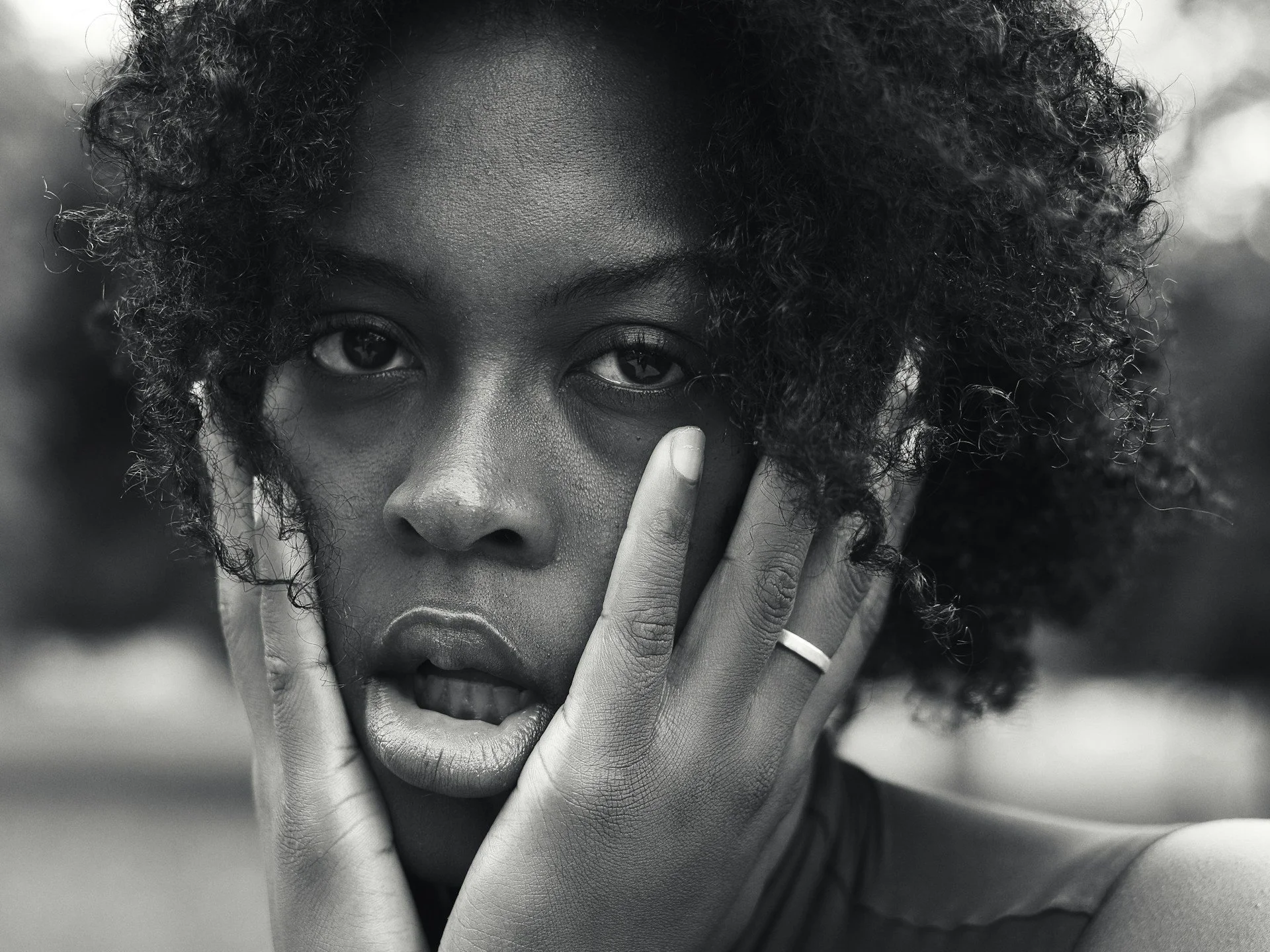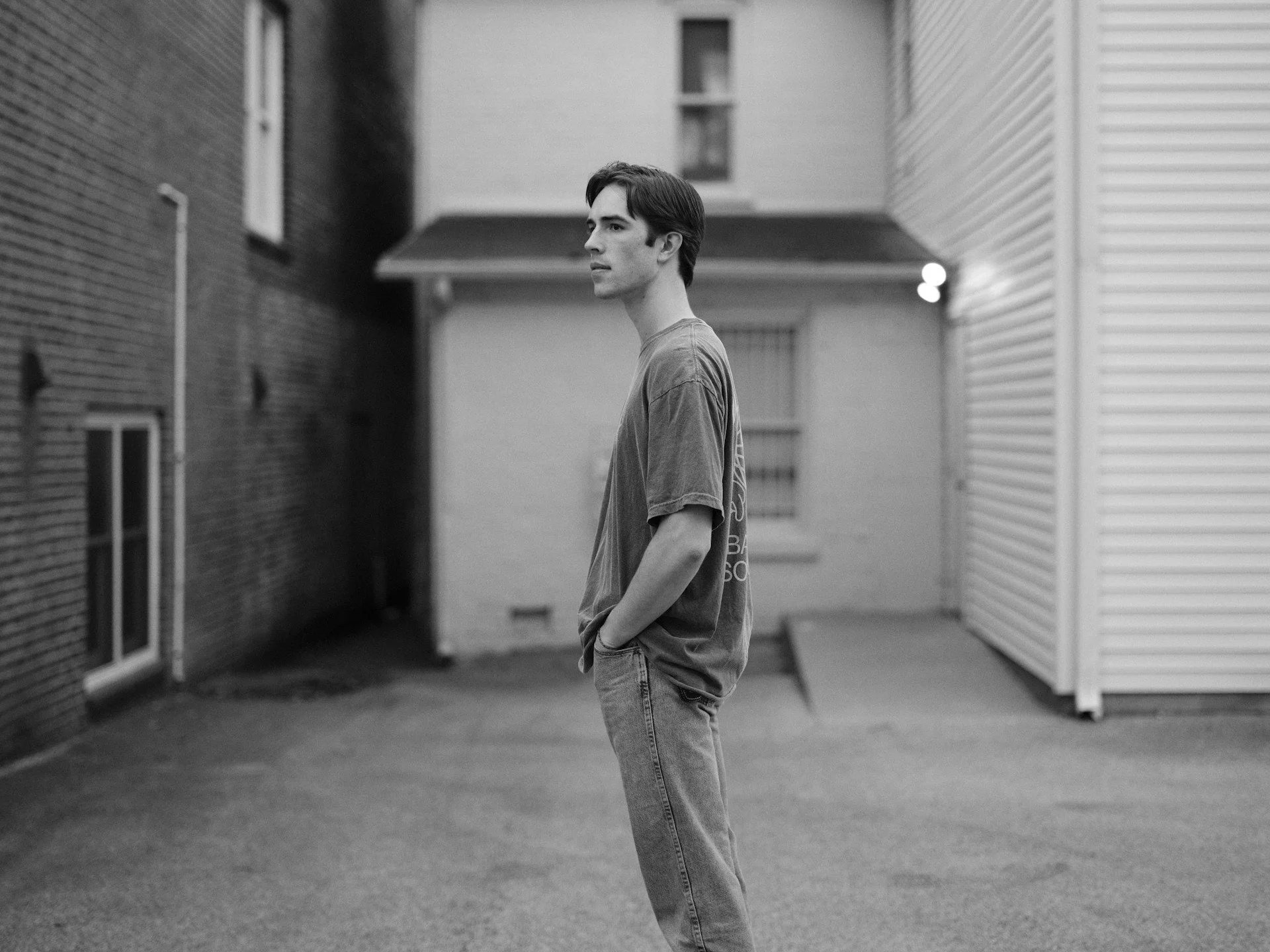7 INFJ Depression Signs You Might Be Ignoring Today
Photo by Brian Wangenheim on Unsplash
“INFJ depression” isn’t a medical diagnosis. You won’t find it in any psychology textbook. But that doesn’t make it any less real.
It’s a way of describing how depression tends to show up in people with the INFJ personality type—quietly, deeply, and often misunderstood.
INFJs are wired to care, to feel, to think deeply, and to seek meaning in everything. So, when something feels “off” in their world, either they’re disconnected from purpose, misaligned with their values, or emotionally exhausted, it hits differently.
Their inner world begins to dim, and instead of lashing out or showing obvious signs of sadness, they often turn inward, becoming quieter, more withdrawn… almost invisible.
It’s not just “being sad.” It’s feeling like you’re drifting through life with a soft ache in your chest and no clear way to explain why.
How It Feels Inside (The Inner Experience)
You might still smile, still show up, still answer messages. But deep down, there’s this heavy, aching emptiness that won’t leave. INFJ depression feels like carrying a silent storm inside.
You overthink everything. Not in a shallow, anxious way, but in a deep, soul-searching kind of spiral.
“Am I even making a difference?”
“I feel so disconnected from everyone!”
“What’s the point of all this?”
It’s like your heart is tired, and your mind won’t stop digging into that feeling, trying to make sense of it.
And the hardest part? No one may notice. Because you’re the “strong one,” the listener, the helper. You know how to wear a calm face. You don’t want to burden anyone. But inside, it feels like you’re disappearing and you’re not even sure how to ask for help.
7 INFJ Depression Signs You Might Be Ignoring
INFJs are incredibly good at masking what they feel, even from themselves. Depression doesn’t always hit loud and obvious. Sometimes, it creeps in like fog: silent, subtle, and easy to dismiss as “just a rough week.”
Here are 7 signs you might be quietly slipping into INFJ depression, even if you’ve been telling yourself you’re fine:
1. You’ve Lost Touch with Your Inner World
You’re usually so in tune with your dreams, your thoughts, your values. But lately? It’s like the light inside dimmed. You probably haven’t journaled in days or weeks; your creative spark is gone, and you feel disconnected from yourself, like you're watching life happen through glass.
Depression affects the prefrontal cortex, the part of the brain responsible for self-reflection, decision-making, and imagination. In INFJs, whose dominant function (Introverted Intuition) thrives on deep internal reflection and future-focused vision, this disruption hits especially hard. When an INFJ is depressed, they may struggle to even recognize themselves.
You may experience what's called "anhedonia," the inability to feel pleasure from things you once loved, which is common in depressive episodes. It’s not laziness or lack of will. It’s your brain struggling to access the very functions that make you you.
That’s why INFJ and depression often go hand-in-hand in such an invisible, internalized way. If you’re a depressed INFJ, you may not look like you're struggling, but inside, everything feels far away.
2. You’ve Gone Emotionally Numb
You're used to feeling everything. But now… nothing feels like anything. Your empathy is dulled. You’re not excited, not sad, just floating. You might not care as deeply as you usually do, and feel guilty about it.
This numbness is another form of emotional blunting, which happens when the brain’s dopamine and serotonin systems are out of balance, both of which play key roles in emotion regulation.
When an INFJ is depressed, this dulling can feel especially foreign, like someone turned off the emotional music that usually plays in the background.
INFJs are emotionally attuned and sensitive by nature, but under chronic stress or low mood, the nervous system can shift into a protective “shutdown” mode. It’s the brain’s way of muting emotional overload, even if that means turning the volume down on all emotions, not just the painful ones.
It’s a defense mechanism, not a flaw; but one that can leave a depressed INFJ wondering if they’ve lost the core of who they are. This is a common but often unspoken experience in the overlap between INFJ and depression.
3. You’re Overthinking in Circles
It’s not the helpful kind of reflection. It’s endless loops. Why did I say that? What if I’m failing? Is everyone just pretending to like me? Your brain won’t shut off, and your thoughts are turning darker by the day.
INFJs are known for their introspection, but when depression sets in, that introspection can become rumination: a repetitive, negative thought cycle linked to changes in the default mode network (DMN) in the brain. This network, which is active when your mind is at rest, becomes overactive during depression, fueling overanalysis and self-criticism, something many INFJ depressed individuals experience without realizing what’s happening.
Studies have shown that ruminating increases the severity and duration of depressive symptoms, making it harder to shift into problem-solving or emotional regulation.
It’s not just “overthinking,” it’s your brain stuck in a loop it can’t break without help. And for a depressed INFJ, that loop becomes its own kind of prison. The quiet war between INFJ and depression often starts right here, in the mind.
4. You’ve Started Ghosting Everyone
Even the people you love. Texts go unanswered. Calls feel draining. Socializing, even in small doses, feels fake or overwhelming. You tell yourself you're just "recharging," but deep down, you're actually withdrawing.
This behavior links to a mix of emotional exhaustion and social withdrawal, two key symptoms of depression. In INFJs, whose empathy can be all-consuming, emotional burnout is common, especially if they've been masking their struggles. For the INFJ depressed, ghosting isn't personal; it's survival.
Depression also disrupts the brain’s reward system, making once-enjoyable connections feel burdensome. When your nervous system is in fight/flight/freeze, avoiding social interaction becomes a way to conserve energy. But INFJs often confuse this with needing alone time, when, in reality, it’s emotional depletion in disguise. This is where INFJ and depression quietly overlap as retreat disguised which they call “rest.” And for a depressed INFJ, even asking for help can feel like too much.
5. You Feel Invisible (and Don’t Know How to Fix It)
You’re surrounded by people, but still feel alone. It’s like no one truly sees you. You want to be understood, but the thought of opening up feels exhausting, or even impossible.
Feeling invisible stems from perceived social disconnection, which is deeply linked to depressive thinking. For INFJs, who crave deep, meaningful bonds over surface-level contact, being misunderstood or emotionally overlooked can be profoundly isolating. It's one of the most painful truths for the INFJ depressed, especially when they’re around others yet still feeling unseen.
Research shows that during depression, the brain's social cognition systems (especially the medial prefrontal cortex) become less active, which may skew how you interpret interactions, making you feel unloved or unimportant, even when you're not.
This is often where INFJ and depression create an emotional mirage, making connection feel impossible even when it’s within reach. If you're a depressed INFJ, it's not that you're invisible, it's that your pain is.
6. You’re Stuck in Meaningless Routines
INFJs crave purpose. So, when your days start to feel like you're just going through the motions, it wears on you fast. You might be doing “all the right things”—work, chores, errands—but deep down, your soul is starving for something real.
Depression often leads to disrupted motivation pathways, specifically involving dopamine, the chemical tied to pleasure, reward, and purpose. INFJs, who are driven by values and vision, feel especially disconnected when life lacks depth or meaning. For the INFJ depressed, even mundane tasks feel hollow, like time is passing without touching anything real.
Studies show that chronic stress and misalignment with personal values increase the risk of burnout and depressive symptoms, and for INFJs, this disconnect can feel existential. This is where INFJ and depression meet in a quiet grief, not just over what's wrong, but over what’s missing. A depressed INFJ often senses something’s off, but can’t always name it, only feel the ache.
7. You Keep Saying ‘I’m Fine’… But You’re Not
Because INFJs don’t like being a burden. You’d rather suffer silently than risk being misunderstood or pitied. But that smile you put on? It’s starting to crack. And part of you is hoping someone might really ask, “Are you okay?”
This is a classic symptom of what's known as smiling depression, where someone appears outwardly okay but is struggling internally. INFJs often lean into perfectionism and self-reliance, which are coping mechanisms tied to early emotional experiences (like being the "helper" or "deep feeler"). That’s why an INFJ depressed may still look “put together,” even when they’re falling apart inside.
Their high emotional intelligence can ironically work against them. They know how to mask pain. But prolonged emotional suppression increases activity in the amygdala (fear center), keeping the nervous system in a quiet state of stress. Over time, this disconnection between inner pain and outer expression deepens the depression. If you’re a depressed INFJ, the silence can be the loudest thing in your life, and that’s why INFJ and depression are often so easy to miss from the outside.
Why INFJs Struggle in Silence
INFJs don’t always ask for help, not because they don’t need it, but because they carry their pain quietly. Here’s why they often suffer behind the scenes:
They fear being a burden.
INFJs are natural caregivers. The idea of “dumping” their pain on someone else makes them cringe. So, they bottle it up and keep smiling, hoping it’ll pass.They downplay their pain, even to themselves.
“It’s not that bad.” “Other people have it worse.” Sound familiar? INFJs often rationalize their emotions, making it harder to recognize when they’re truly struggling.They’ve been told they feel “too much.”
Sensitivity is a superpower, but it’s often misunderstood. INFJs may internalize the idea that they’re “too emotional” or “dramatic,” so they learn to hide their feelings just to avoid judgment.
Liking this article? Join our Introvert Club→
Common Triggers and Patterns of INFJ Depression
Depression rarely comes out of nowhere for an INFJ. It usually builds, triggered by emotional misalignment and soul-deep exhaustion. Some common culprits include:
Chronic people-pleasing and emotional burnout.
Always putting others first? It catches up. INFJs often overextend themselves emotionally, then collapse quietly under the weight.Living out of sync with their values.
When their daily life doesn't reflect what they believe in, INFJs feel hollow, even if everything looks “fine” from the outside.Feeling unseen, misunderstood, or disconnected.
Surface-level relationships drain them. If they can’t express their true self somewhere, they start to disappear emotionally.Existential questioning or a lack of purpose.
INFJs crave meaning. Without it, they start spiraling, not just asking “What am I doing?” but “Why am I even here?”
The Danger of Disappearing (Isolation Loop)
When INFJs feel overwhelmed, their first instinct is to retreat. They stop texting back. Cancel plans. Mute group chats. They tell themselves they’re just “recharging,” but in reality, they’re slowly disappearing. The thing is, isolation feels safe to INFJs. It’s quiet, controlled, and free of performance.
But it can also become a trap. The more they disconnect, the harder it becomes to come back. Days blur. Creative expression fades. Their inner world starts to go silent. And because they don’t want to “make a fuss,” they stay silent longer than they should.
What starts as self-preservation can quickly turn into a lonely loop of emotional numbness, one that’s hard to break without a gentle, intentional nudge.
How to Help an INFJ Who’s Depressed
INFJs may not ask for help directly, but that doesn’t mean they don’t need it. If you love an INFJ who’s struggling, here’s how to support them in a way that feels safe and genuine:
Offer your presence.
Just being there, even in silence, can mean everything. Don’t rush them to open up. Let your presence remind them they’re not alone.Check in softly.
INFJs need solitude, but isolation can spiral. Gentle messages like “Thinking of you today” strike the right balance between space and support.Help them reconnect to their values or creativity.
Depression disconnects them from their core self. Invite them to sketch, journal, or talk about something that lights them up. Not to “fix” them, but to help them feel like themselves again.Gently challenge their inner critic.
INFJs can be their own worst enemy. Remind them (lovingly) when their thoughts sound cruel or untrue. Be the voice of compassion when theirs goes quiet.
Healing Tips for INFJs (What Helps Over Time)
Healing isn’t linear, especially for INFJs, who feel and process life on a soul-deep level. But over time, these practices can gently guide them back to themselves:
Journaling and introspection with intention.
Let the inner world speak again. Writing helps INFJs untangle the emotional knots and rediscover their voice.Meaningful routines and aligned purpose.
Even simple rituals (like a morning tea or 10 minutes of reflection) help rebuild a sense of groundedness and meaning.Expressive outlets: writing, art, music.
Creative expression isn’t optional, it’s medicine. INFJs often heal by turning emotion into beauty.Safe, authentic connections with people who truly see them.
One deep connection is more powerful than ten shallow ones. INFJs don’t need many people, just the right ones.Therapy with someone who understands introversion and sensitivity.
The right therapist can help untangle both emotional wounds and personality-related challenges. Especially someone who gets the INFJ mind.
Live Your Best Quiet Life
Get the Am I Too Quiet? book →
Final Thoughts:
INFJ depression is often quiet, complex, and deeply internal, making it easy to miss and hard to voice. Because INFJs are naturally introspective, empathetic, and driven by meaning, depression doesn’t always look like sadness. It can show up as numbness, disconnection, burnout, or a haunting sense of purposelessness. Their tendency to retreat inward, overthink, and avoid burdening others can create a loop of isolation that silently deepens the pain.
But INFJ depression isn’t hopeless. With gentle support, creative expression, meaningful connection, and environments that honor their values, INFJs can slowly reconnect with their inner world and begin to heal in a way that feels authentic and sustaining.
Share this with an INFJ person that needs to read this.














